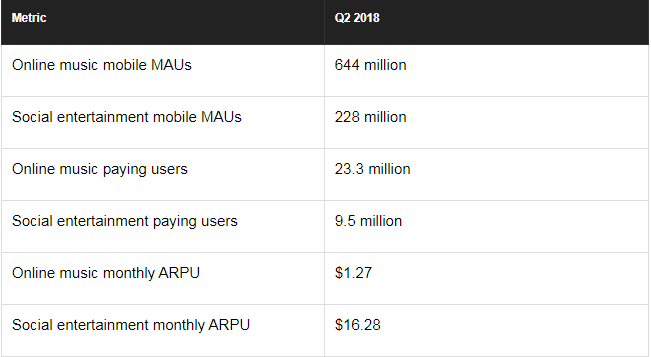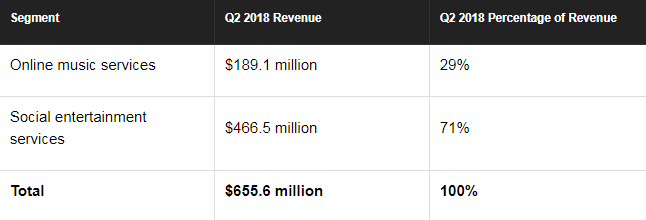The Largest Music-Streaming Service In The World Just Filed To Go Public

Spotify (NYSE:SPOT) may be the global music-streaming leader in terms of paid subscribers, but when it comes to the overall user base, no one comes close to Tencent Music. Over the summer, reports surfaced that Tencent Music was preparing to go public, which would actually benefit Spotify because the two companies did an equity swap last year. Tencent Music, which is a subsidiary of Tencent (NASDAQOTH:TCEHY), has now officially filed to go public in the U.S.
This article originally appeared in the Motley Fool.
Here's what investors need to know.
Digging into the business
The F-1 Registration Statement gives investors the first glimpse at its books, providing quite a few notable takeaways about the global music-streaming market. Tencent Music operates numerous platforms for music streaming and music-centric social entertainment, with QQ Music, Kugou Music, Kuwo Music, and WeSing being the most prominent. The vast majority of mobile monthly active users (MAUs) are free, ad-supported users. Here's a snapshot of the user base:

Note that Tencent Music only counts subscriptions as paying users. Users can also make a la carte purchases, but these can be infrequent and fluctuate, so Tencent excludes those users from its paying users metric. That's an important distinction, as Tencent Music VP Andy Ng told Bloomberg last year that the company had 120 million users that pay to stream or purchase music. Most of them don't subscribe.
Looking at just the music-streaming side of the business, here's how it compares to peers Spotify and Apple:

It's also apparent that the social entertainment business is much stronger than music streaming, both in terms of the ratio of paying users as well as how much those users pay. Social entertainment paying users primarily purchase virtual gifts or premium memberships for artists who live-stream performances.
Think of it like Amazon's Twitch, but instead of video games, it's musical performances and karaoke, much like Musical.ly (since acquired and combined with TikTok). This business represents over 70% of revenue, despite having a MAU base that is roughly a third of the size of the music-streaming business.

Tencent notes that on a per-capita basis, the U.S. offline music performance market was about 43 times as large as China's market in 2017, according to iResearch. Live musical performances in China have long been less accessible compared to the U.S., which has sparked surging demand for online interactive music live streams.
Keep an eye on Tencent Music
Perhaps the most important difference between Tencent Music and Spotify is that Tencent is solidly profitable, posting net income of $253 million in the first half of 2018. While Tencent Music does face royalty costs for licensing music just like Spotify does, the music-streaming business is much smaller than the social entertainment segment, where the bulk of costs consists of revenue-sharing arrangements and other fees paid to content creators.
As the first version, the F-1 still has a lot of blanks to be filled in, such as how many American depositary shares the company will sell. Tencent Music is tentatively looking to raise upward of $1 billion from the offering, and the company will remain controlled by parent company Tencent. With as big as China's music entertainment market will be in the years ahead, Tencent Music will be one to put on your watchlist.
John Mackey, CEO of Whole Foods Market, an Amazon subsidiary, is a member of The Motley Fool's board of directors. Evan Niu, CFA owns shares of AAPL, Spotify Technology, and Tencent Holdings. The Motley Fool owns shares of and recommends AMZN, AAPL, and Tencent Holdings. The Motley Fool has the following options: long January 2020 $150 calls on AAPL and short January 2020 $155 calls on AAPL. The Motley Fool has a disclosure policy.




















